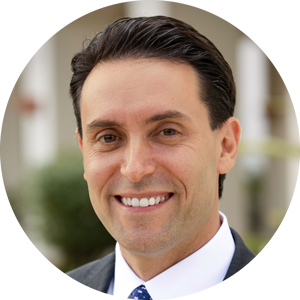What Are You Thankful for in Your Financial Life?
This Thanksgiving will be particularly profound for me. A close family member had been very ill earlier in the year but has made a complete recovery.
Over the summer, I assumed she’d no longer be here at Thanksgiving. Instead, she’ll be enjoying herself in full health like everyone else at the table.
Without a doubt, I’m most thankful for that.
When it comes to my financial life, I also have an awful lot to be thankful for.
The fact that I found a profession and job that I love has had a very positive effect in my family’s finances. It’s hard to thrive when you’re just punching a clock waiting for quittin’ time.
I’m thankful that I live in a country that, despite its problems and current divisiveness, still offers opportunities to people who are willing to work hard and take risks – whether that’s starting a new business or investing in an existing one.
I’m thankful that I stumbled on the power of compounding when I was 22 years old.
Back then, I read a statistic that floored me. I learned that if I saved $2,000 per year from 21 years old (I was a year late) to 31 years old, I’d have more money at 65 than I would if I saved $2,000 per year from 31 years old to age 65.
That was a real eye-opener, and it inspired me to save as much as I could for retirement as early as I could.
Thirty years later, that decision, after letting my investments compound for three decades (with at least another one to go), was easily the best financial decision I’ve ever made.
But I would say I’m most thankful for the financial lessons that I learned from my parents.
They never sat me down and explained Wall Street to me, and they never went over many other financial concepts. But like most kids, I learned a lot from observing my parents’ behavior.
I grew up solidly middle class. My dad was an assistant principal. My mom was a homemaker until I was in high school.
We never went without – but we didn’t live in luxury either, like many of my friends did. I saw that my parents never bought anything they couldn’t afford.
Their best friends, who are like family (my brother calls them aunt and uncle), are very wealthy. My folks never felt the need to try and keep up.
Many of their friends had money. They drove Cadillacs and Mercedes-Benzes.
When my dad needed a car, he bought his Aunt Esther’s Oldsmobile Delta 88, which had no power steering or power windows. I’ve been on cruise ships that were smaller and easier to steer than this thing.
Why did he buy it? Because it was a great deal.
I ended up driving that beast in high school (which, believe me, I was very thankful I had a car to drive at all).
My parents saved and invested. They spent money on things that were important to them, like a yearly trip to Florida to visit my grandparents, charitable donations, and putting my brother and me through college.
I never once saw them fight about money or about whether we really needed to buy something. They were in lockstep with each other and presented a united front.
And they always encouraged me to work. I shoveled snow starting at 10 years old, and my dad would let me use his salt to melt the ice.
(I went through a lot of salt. I had practically the entire block under contract for the winter by the time I was a teenager.)
They picked me up late at night from my first high school job when I didn’t have access to a car.
And when I got my first job out of college making $18,000 a year, they let me live at home for free for six months while I saved for a security deposit and first and last month’s rent.
I’ve worked very hard to be where I am financially. But I’m smart enough to know that I’ve been lucky too.
And the luckiest aspect of my life was to be raised by parents who taught me the value of a dollar and hard work, even though they may not have been aware of it at the time.
And for that, I’m truly thankful.
What are you thankful for in your financial life? I’d love to hear it. Please tell us in the comments section.
I hope you have a wonderful Thanksgiving with lots of great food, great people and great stories.
[adzerk-get-ad zone="245143" size="4"]About Marc Lichtenfeld
Marc Lichtenfeld is the Chief Income Strategist of Investment U’s publisher, The Oxford Club. He has more than three decades of experience in the market and a dedicated following of more than 500,000 investors.
After getting his start on the trading desk at Carlin Equities, he moved over to Avalon Research Group as a senior analyst. Over the years, Marc’s commentary has appeared in The Wall Street Journal, Barron’s and U.S. News & World Report, among other outlets. Prior to joining The Oxford Club, he was a senior columnist at Jim Cramer’s TheStreet. Today, he is a sought-after media guest who has appeared on CNBC, Fox Business and Yahoo Finance.
Marc shares his financial advice via The Oxford Club’s free daily e-letter called Wealthy Retirement and a monthly, income-focused newsletter called The Oxford Income Letter. He also runs four subscription-based trading services: Technical Pattern Profits, Lightning Trend Trader, Oxford Bond Advantage and Predictive Profits.
His first book, Get Rich with Dividends: A Proven System for Earning Double-Digit Returns, achieved bestseller status shortly after its release in 2012, and the second edition was named the 2018 Book of the Year by the Institute for Financial Literacy. It has been published in four languages. In early 2018, Marc released his second book, You Don’t Have to Drive an Uber in Retirement: How to Maintain Your Lifestyle without Getting a Job or Cutting Corners, which hit No. 1 on Amazon’s bestseller list. It was named the 2019 Book of the Year by the Institute for Financial Literacy.






